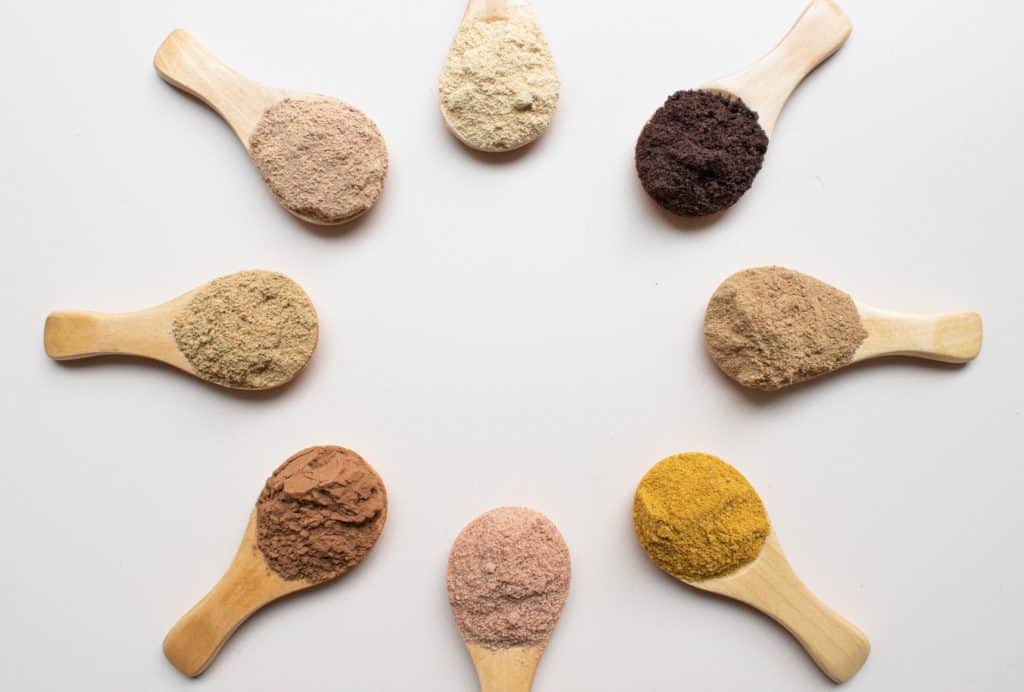
Dietary supplements are considered to be a fractional component of bodybuilding as a whole. But when it comes to bodybuilding, especially at the competitive level, it is the finer details that are the difference between winning and losing.
Natural bodybuilders do not have the benefit of performance enhancing compounds. As a result, they need to be more meticulous with their diet and training, since a natural lifter’s body can only take so much.
It is not always a matter of pushing through the physical and mental pain to work out for hours a day. A natural bodybuilder needs to be able to extract the most out of each workout without overtraining. An enhanced lifter has much more capacity for workout volume since they are able to use performance enhancing drugs.
The few percentage point advantages you can obtain from proper supplementation can give you an edge on an individual who is not as educated on the subject. Worse yet are the people who think all supplements are worthless.
While there are certainly products on the market that don’t provide much, there is a ton of clinical research that shows that there are numerous supplements that provide an ergogenic aid. This could be in the form of muscle growth, fat loss, strength gains, or recovery.
The best supplements will give you more bang for your buck and check more than one of those boxes. Some of the selections may be obvious, but others overlooked. The supplements listed are backed by research, and are in no particular order.
1. Essential Amino Acids and Carbohydrates (Intra Workout)
A natural bodybuilder needs to optimize every facet of their training in order to be competitive. It’s plain to see that each workout is monumentally important. You cannot build muscle without the stimulation from a hard resistance training workout.
With that said, why not utilize intra workout supplementation to get the most out of each workout?
Essential amino acids (EAA) are superior to branched chain amino acids (BCAA) since they elevate protein synthesis and provide the full amino acid complex needed to build muscle. Many people are unaware of this and continue to supplement with BCAAs. Aside from alleviating some muscle soreness, BCAAs alone are pretty much useless.
Carbohydrates are the primary energy source for intense workouts like lifting weights. Carbohydrates are stored in muscle, but in a limited amount. The body will burn through this usable energy reserve relatively quickly.
Supplementing with carbohydrates during the workout improves muscular endurance and overall performance. Most people lose steam during the last few exercises, and while this is inevitable, it can be partially mitigated through carbohydrate ingestion.
Carbohydrate supplements range from a Gatorade powder for a few dollars to cluster dextrin for about $30. The benefit of a supplement like cluster dextrin (sometimes called cyclic dextrin) is its ability to digest rapidly and enter the bloodstream for immediate use.
2. Creatine
Creatine is the supplement that everyone knows works, but is often ignored when roaming the aisles of a nutrition store. It’s been around for years and has had more research performed on it then every other major supplement ingredient combined.
In terms of benefits, creatine is the most comprehensive supplement on the market. Creatine is an energy source, similar to the carbohydrates listed above. It is particularly adept at providing energy for maximal output. In the first few reps of a heavy lift you will undoubtedly use creatine to get the weight up. This is part of the reason why creatine aids in strength.
Creatine also pulls water intramuscularly (inside the muscle). This too aids in strength but also muscle size. Muscles are predominately water, so adding more water increases the overall volume of the muscle cell. This is why it’s important to drink water when supplementing with creatine.
A common misconception with creatine has to do with water retention. As mentioned, water is pulled into the muscle, not subcutaneously (under the skin). Many natural bodybuilders will discontinue creatine use leading into a show, but this is the worst thing you can do.
A big fear among bodybuilders is looking flat and stringy on stage. A bodybuilder is already depleted from dieting in an attempt to get as lean as possible. It doesn’t make sense to cease use of the one supplement that will keep muscles full and hydrated.
The majority of research has been done on creatine monohydrate. Since creatine monohydrate has been shown to fully saturate creatine levels in muscle, there is no need to look for an alternative form.
Creatine is found in red meat, but much of it is lost while cooking. It would be a large, and unnecessary, feat to get adequate creatine from diet alone.
3. L-Carnitine
Carnitine is a transporter which is part of the process that turns fat into energy. Ironically, the research on whether carnitine aids in fat loss independent of diet is iffy, but there are a great deal of other benefits that go completely ignored.
Carnitine has been shown to increase lean mass and improve blood flow. But its most pronounced benefit is in its reduction of fatigue during exercise.
A byproduct of lifting weights, or intense exercise in general, is ammonia. It is what causes fatigue, forcing you to slow down or stop completely. Carnitine supplementation helps to decrease ammonia, allowing you to increase work output in the gym.
This effect translates to post exercise recovery as well.
Carnitine is found in many supplements, but it is typically underdosed. 1-2 grams is a proper dose, but pre and post workout supplements usually cap out at about 500mg (or .5 grams). This is why it may be better to buy carnitine as a standalone supplement.
Carnitine can be found as L-Carnitine, Carnitine Tartrate, or Acetyl L-Carnitine (ALCAR). All are acceptable forms and at the moment one does not seem to be superior. Acetyl L-Carnitine is the form that is able to potentially induce the cognitive benefits that some research has shown.
4. Magnesium
When people think of electrolytes, they typically think of sodium or potassium. But Magnesium is one of the more prevalent electrolytes in the body. Its benefit for the sake of natural bodybuilding goes beyond its role as an electrolyte however.
Magnesium is involved in hundreds of biological processes in the body, including protein synthesis and muscle function. It increases muscle oxygenation (the amount of oxygen that goes to the muscle being worked), which theoretically should improve workout performance.
Magnesium also can improve insulin sensitivity. In the scope of bodybuilding this refers to the body’s ability to absorb and utilize nutrients in an efficient manner.
Dosing magnesium can be tricky; there are variety of forms and protocols. Magnesium can have a laxative effect if too much is taken. Best bet is to take a small dose, in the 200mg range, and assess from there. Many people choose to supplement with magnesium at night since they feel it relaxes them.

5. Ashwagandha
As one of the most promising new supplement ingredients, ashwagandha is far more than just an herb that can alleviate stress and anxiety. It has benefits that directly impact natural bodybuilding.
Thus far, the discussion has centered on workout performance and muscle building. But optimizing testosterone levels has not been mentioned.
Many of the supplements that claim to boost testosterone lack the research proving their efficacy. The promising aspect of ashwagandha is that preliminary research shows a testosterone increase in young, healthy men.
Other supplements will claim to boost testosterone, but when you dig into the research you find that the studies were done in older, infertile men who do not exercise. In many cases, simply making lifestyle changes like adding exercise and improving diet will lead to increases in testosterone in those populations.
Ashwagandha has also been shown to improve strength, power output and sprint performance (not that bodybuilders sprint but it’s the anaerobic exercise component that is relevant). It may also increase motivation as a proxy to its stress reducing traits.
6. Protein Powder
Recently, I took on a high level athlete for a nutrition consultation who did not want to use protein powder. It was probably the first time that a client did not enjoy any type of protein supplement, whether it be whey, egg, or vegan protein.
While putting together the plan I quickly realized how difficult it is to reach optimal protein levels without the use of supplementation. It’s not as if protein powder is inherently special, it’s just an incredibly convenient way to get 25-50 grams in an instant.
A bodybuilder will aim to get one gram per pound of bodyweight at the very least. Doing this with food alone is a challenge. Eating a lot is part of the gig, but you also have to perform in the gym. At a certain point you just want to pound a protein shake instead of shoveling in another 6 ounce chicken breast.
Recent Posts
Stretching Before Workouts: Essential Warmup or Performance Killer
“Don’t stretch before workouts, your muscles become too supple” “Stretch before your workouts, warming up is important” It's conflicting advice like this that drives people crazy,...
Best Protein Bar For the Money | Cost Effective, High Quality
Protein bars are no longer a supplement dedicated to diehard gym rats, with awful taste and the consistency of a brick. Men, women, and even teenagers can commonly be seen eating protein bars. The...
